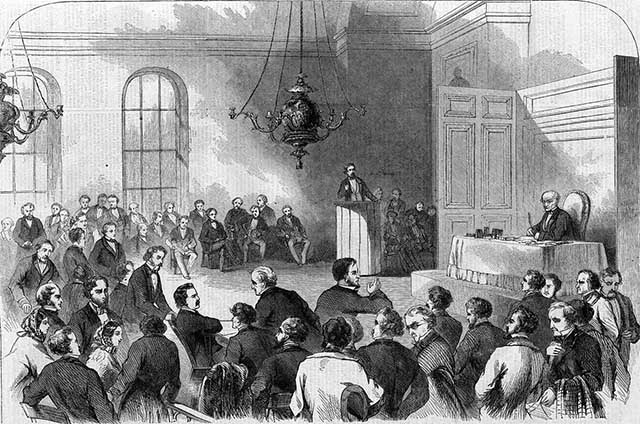Orit Kamir’s research is interdisciplinary, critical and feminist; it combines reference to and analysis of law, literature, film, philosophy, society, Israel, Zionism, Judaism, Gender, and above all the fundamental values dignity, honor, glory and respect.
Her articles, published in professional (academic) journals, edited collections and monographs in Hebrew and in English, contain textual analysis, conceptual scrutiny, as well as sociological, normative and even statistical investigation.
Some articles focus on a particular text (a story, a film), others — on a specific concept (such as the Hebrew beila and kavod, or the English stalking), and others still — on social phenomena and their developments (such as women’s family names). Some offer a theoretical model and apply it to illustrative examples. Many conclude with a suggested reform (such as legislation, for example, to prevent stalking, sexual harassment, rape or workplace bullying).[1]
[1] Some such proposed bills were enacted as legislation, most notably Israel’s legislation to prevent sexual harassment.
Human Dignity Feminism; Women and Gender Politics in Israel
Orit Kamir has been a feminist activist (in Israel) since the 1980s. In addition to drafting feminist bills, teaching feminist classes and sounding a clear feminist voice in Israel’s public discourse Kamir has developed a feminist perspective she calls human dignity feminism.
Dominance Feminism (such as Catharine MacKinnon’s) exposes and analyzes the underlying socio-cultural structures that indoctrinate us into dominant masculinity and subservient femininity through language, religion, law, customs, norms and imagery. Kamir points to patriarchal honor as a primary, vital component of many such underlying structures. Her research teases out the specific mechanisms and performances of patriarchal honor in socio-cultural, as well as legal phenomena.
In much of her feminist work, Kamir develops and applies a theoretical model that allows for systematic, multi-disciplinary study of gender issues. The model allows careful consideration of social, cultural and normative aspects of any given gender issue. It encourages close examination of underlying dynamics of honor and human dignity. It urges proposal of innovative propositions.
Some of Kamir’s feminist publications include specific proposals, such as drafts for feminist legislation. A 1997 article on sexual harassment included a draft bill that was adopted by the Israeli parliament and legislated as Israel’s 1998 law for the prevention of sexual harassment. A 2003 article on rape proposes a new conceptualization of sexual offenses and includes a draft bill that has been endorsed and put forth by three parliament members. Kamir’s introduction to feminism (2001) is a long standing basic text book in the field.

Honor and Dignity in Society, Gender Dynamics and Law (often regarding Israel and Zionism, or Film)
Orit Kamir has been researching human dignity and honor (as well as respect and glory) for two decades. Her focus is on honor and dignity in Israeli (and Zionist) society and culture, law, gender and feminism, and (international) film analysis.
The research originated with the legislation, in 1992, of Israel’s Basic Law: Human Dignity and Liberty. Research led Kamir to realize that the Hebrew word kavod, which is translated to “human dignity” in the Basic law’s title, actually denotes a whole category of values, of which dingity is merely one. The Hebrew concept of kavod unites in one term the different concepts that English labels “dignity”, “honor”, “respect” and “glory”. These four English terms have been used to translate diverse aspects of kavod in the Hebrew Bible.
Honor, as defined by many anthropologists, refers to the fundamental value underlying normative codes in societies called “honor-and-shame”. It is also the value and worth a member of such societies earns and accumulates (by adhering to the group’s honor code) and is entitled to feel in reference to competing peers. Such honor is a relative marker of one’s standing, status and prestige in the group’s pyramid. It is always influenced by every other group member’s moves, and is thus every changing. Human dignity, in contrast, is the absolute, never changing, universalist value and worth attributed to the humanness of every member of the human family. Since this humanness is identical in all human beings, so is human dignity. One cannot earn or accumulate it; one is merely prohibited from offending it. Glory, in this typology, is the theological notion of value inherent to every human being made in the image of God. Glory is the theological predecessor of human dignity. Respect (noun), is used to denote the value and worth attributed to the specific traits of a certain individual. It marks the value of unique choices and achievements; not in comparison and competition with peers, all adhering to normative codes, but only against the individual’s free and autonomous preferences.
Realization of the important similarities and differences of these four values (all intertwined in the Hebrew word kavod) has given rise to dozens of academic articles, several books and hundreds of blog posts (all mostly in Hebrew). All books, articles and posts apply the categorization to history, culture, society, law, film and endless current events. This sheds new light on the analyzed phenomena, as well as on the concepts.

Law and Culture/ Law and Film
Many of Orit Kamir’s publications analyze cinematic texts, exposing their fictional worlds’ underlying social and legal structures. Kamir’s reading applies critical and feminist perspectives, revealing underlying honor and/or dignity-based codes.
Most of these articles and book chapters present and develop Kamir’s unique version of the new, interdisciplinary field of research, “law-and-film”. Law-and-film integrates legal and meta-legal analysis with critical literary and sociological discourses. Kamir develops three distinct strands of law and film, each entailing a distinctive point of view on “law films”.
One type of law-and-film analysis that Kamir suggests is analysis of law films that exposes them as powerful tools that assist in the indoctrination of their viewers into legalistic and judgmental modes of existence. Many law films, be their covert ideologies what they may, in fact invite their viewers to engage in judgment, thus “training” them in legalistic and judgmental practices. Often the judgment viewers are enticed to partake in evokes conservative, patriarchal social and legal norms that the films assume and take for granted. Kamir shows how important and influential law films (such as the Japanese Rashomon, the Hollywood Anatomy of A Murder or the Iranian A Separation) perform and accomplish all this.
Another type of law-and-film project is the revelation of law films’ popular jurisprudence. Such jurisprudence, despite its popular avenue, may be thoughtful, sophisticated and innovative (as is the case in Barbara Streisand’s Nuts, or Roman Polanski’s Death and the Maiden). Yet another perspective suggested by Kamir is one that examines law and cinema’s parallel modes of operation. For example, both law and film may evoke a moral panic, or judge a rape victim. They may do so in different yet analogous ways, thus echoing and empowering each other.
These types of critical and feminist analysis of law films reveal how many films that seem entertaining (Simply Blonde) or even progressive (Adam’s Rib) may, in fact, advance conservative world views. They also reveal how, as any complex, multilayered text, a film may perform several different social tasks that don’t necessarily coincide.
Kamir’s most extensive work that presents this version of law-and-film is her book Framed: Women in Law and Film.
